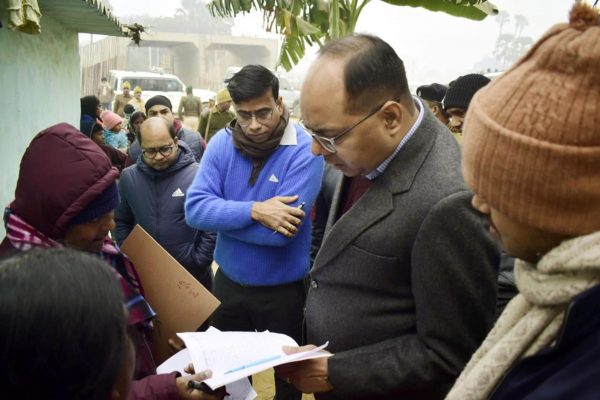The length of household census schedules doubled during 1951–2011, mirroring the doubling of government spending as a percentage of national income. The census enjoyed enormous political and bureaucratic support in the first few decades after independence. During this period, delimitation of parliamentary and state assembly constituencies and federal fiscal redistribution followed the results of the most recent decennial census.
This changed in the mid-1970s. Concerned about resource constraints amid rapid population growth, the government introduced aggressive population control policies and uncoupled key policies, including delimitation and redistribution, from the census. It wanted to protect the interests of states that had been relatively successful in population control, but this had an unintended side effect. The quality of the census ceased to be a priority, as the latest data was no longer used in high stakes exercises like constituency delimitation and fiscal transfer.
The census suffered further due to the growing deinstitutionalisation of the state and the communalisation of the polity — reflected in increasing delays in the release of data, despite the progressive introduction of advanced data processing technologies.
Crucial administrative reports on the census and reports on general population tables were eventually discontinued amid a general decline in the quality and availability of metadata. The end of the Cold War and economic liberalisation in the early 1990s also affected government statistics by transforming the underlying political economy. For instance, large coverage and content errors affected post-1991 censuses across the country’s landlocked ethnogeographical periphery.
The government responded to the emerging challenges by framing census rules in 1990, amending the census legislation in 1994 and constituting the National Statistical Commission in 2000. The recommendations of the commission were belatedly implemented in a piecemeal fashion, which failed to stop the decline in the quality and availability of data. The deinstitutionalisation of statistical bodies and politicisation of statistics has reached a stage where the government could indefinitely postpone the 2021 census on flimsy grounds without care for the policy and administrative consequences of the resultant data deficit.
The continued relevance of the conventional census is, however, illustrated by the ongoing controversy on counting caste. In some of the colonial censuses, questions on caste identity were, in principle, posed to all respondents. After the 1951 Census, the government restricted questions in this regard so that caste names were recorded only for the members of officially-recognised Scheduled Castes, whose entitlement to various affirmative action schemes and special political representation is mandated by the constitution. The data deficit born of this shift in the state’s enumerative practices limited the scope of affirmative action for those who belong to the Other Backward Classes, an official designation for social groups that are members of neither the Scheduled Castes nor upper castes.
Critics question the sincerity of successive governments that have avoided canvassing the caste question for everyone, effectively rendering the historical privileges enjoyed by the upper castes invisible. The growing dissatisfaction with affirmative action policies has led to demands for a caste census or the expansion of the scope of the question on caste in the conventional census.
In this context, the Bihar government’s decision to release the results of a state-level caste census has received support from several opposition parties. They are promising to conduct similar exercises in states going to polls in November 2023 and to highlight this issue in the 2024 parliamentary elections. The demand for conventional censuses has, therefore, grown rather than diminished.
Reforms introduced over the past few decades have focussed on the technology of collecting and processing data. Most recently, the government replaced printed census schedules with digital devices to record answers. But these narrow technological interventions fail to address key issues.
The controversy surrounding a proposed National Register of Citizens, a nationwide population database, highlights the importance of trust in the government’s statistical engagements with citizens. The government needs to rebuild trust in the census by depoliticising it, engaging people through community outreach to explain both the methods and purpose of the exercise, addressing growing concerns about privacy amid shift to digital enumeration and resuming the practice of publishing detailed descriptive reports that demystify the results.
The autonomy of the census department should be restored allowing it to decide things such as the design of schedules and calendar of the release of data. Schedules should also be rationalised and restricted to questions essential for fulfilling the constitutional, administrative and statistical obligations of the census. This would reduce the workload of enumerators, make room for new, more relevant questions on topics such as caste, and help allay privacy concerns.
The census also needs to conduct in-depth micro-surveys to refine existing questions, improve enumeration and tabulation practices and identify newer questions for its schedules. The government must adapt the census to emerging challenges and rebuild trust in the exercise.
Vikas Kumar is Associate Professor at Azim Premji University, Bengaluru, and author of Numbers as Political Allies: The Census in Jammu and Kashmir.

